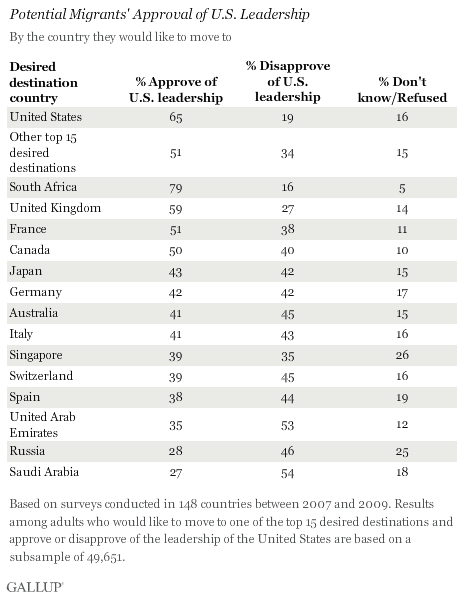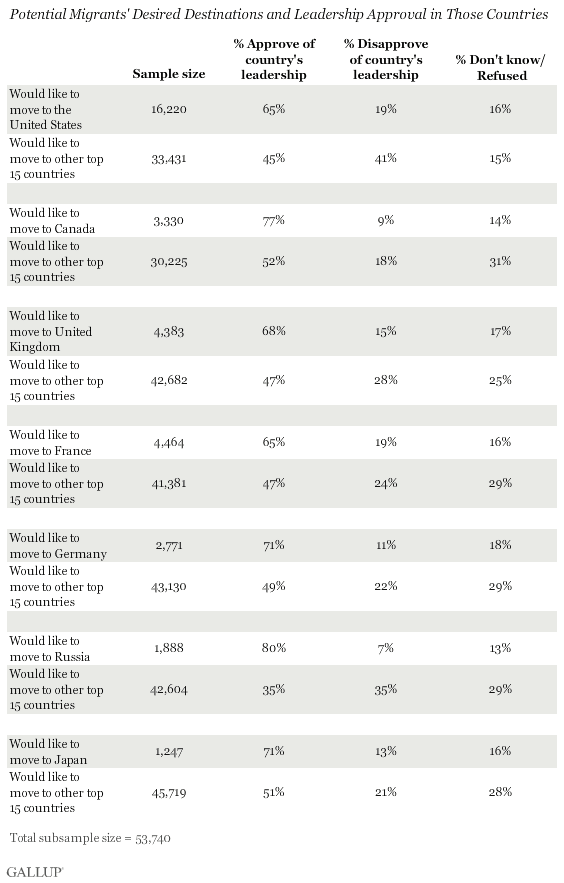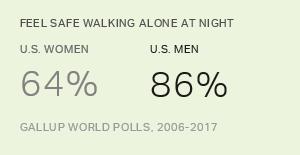WASHINGTON, D.C. -- Potential migrants who would like to move to the United States are more likely to approve of U.S. leadership than those who would prefer to move to the world's top 15 desired destinations. Those who aspire to move to South Africa are the sole exception.

Gallup surveys in 148 countries between 2007 and 2009 reveal that potential migrants -- those who say they would permanently relocate to another country if they could -- generally give higher approval ratings to the leadership of the country they would like to move to than those who want to move to other countries. This is true among migrants who would like to move to the United States -- the No. 1 desired destination worldwide -- and six other top destination countries that Gallup asked adults to rate the leadership of, including Canada, the United Kingdom, Japan, Russia, France, and Germany.

Potential migrants who would like to move to South Africa are more likely than those who want to move to the United States to approve of U.S. leadership, but the group's tendency to give high ratings to the leadership of the seven countries tested may explain this. Prospective migrants who want to move to South Africa tend to mostly hail from sub-Saharan Africa, where Gallup has historically found high approval ratings of the leadership of many countries.
Except for those who want to move to the United States, potential migrants also tend to be more likely to express an opinion about of the job performance of the leadership in their "dream country" than those who want to migrate somewhere else. For example, among prospective migrants who want to move to Canada -- the No. 2 desired destination in the world -- 14% say they don't have an opinion of the country's leadership, compared with 31% among those who want to move to any of the other top 15 desired destination countries.
Bottom Line
Overall, a country's leadership matters in the global dialogue about migration. Gallup's research shows many of the top-desired destination countries appear to attract potential migrants with two traits that are desirable for future citizens -- they not only are more likely to already approve of the country's leadership, but they also tend to be more likely to already know something about it.
Survey Methods
Results are based on telephone and face-to-face interviews with 347,713 adults across multiple administrations of surveys in 148 countries between 2007 and 2009. Results among adults who would like to move one of the top 15 countries are based on a subsample of 53,740. Sample sizes among potential migrants who would like to migrate to a specific country and approve or disapprove of the leadership of the seven countries tested range from 149 to 16,220.
One can say with 95% confidence that the margin of sampling error for the populations studied in this analysis, accounting for weighting and sample design, ranges from less than ±1 percentage point to ±9.8 percentage points.
